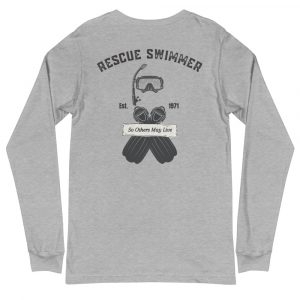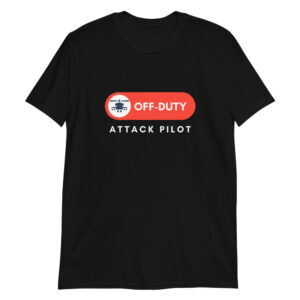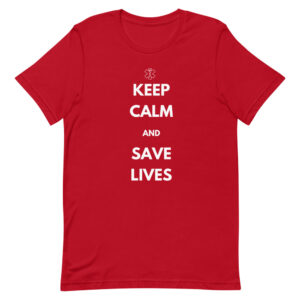Don't miss our flash to bang SALES!
Mrs. Joan Quigley reflects on WWII and Gives Advice for Future
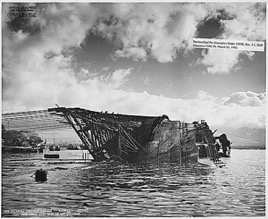
Answer: Joan Quigley.
Question: Hm-hmm.
Answer: J-O-A-N Q-U-I-G-L-E-Y.
Question: And you grew up — where did you actually grow up?
Answer: Out at Joyce, which is 15 miles west of here.
Question: On the way to Neah Bay.
Answer: Right.
Question: I went through it. Is it before — is it Pisht?
Answer: It’s before — yes, it’s before that name.
Question: And am I saying it right?
Answer: You are, you are, hm-hmm. It’s an Indian name and I don’t — I don’t know what it means, but it is an Indian name.
Question: (inaudible)
Answer: Oh, no, but it’s little — and the school — the new school — we call it the new school, but the school where I was — went to school, was a beautiful two-story red brick school. Very beautiful school. But they tore it down.
Question: They don’t build them like that anymore.
Answer: No, they don’t. It was a shame that they had to tear it down. But it — that was where — and the grade school was in the bottom, you know, the main floor, and then high school was up above, the second floor. And then the gym was in the middle so it was – it was a neat school. Small school and we had wonderful dedicated teachers and wonderful good education. I, you know, we were able to leave and go to college and get honors programs very easily because we had such — that one on one almost with our teachers.
Question: It’s amazing what a different time it is. You know, we’re struggling with our education these days —
Answer: I think smaller’s better.
Question: Wholeheartedly.
Question: Were you here then when Pearl Harbor happened?
Answer: Yes. I was. I was in the sixth grade, and on Pearl Harbor day I was playing with my cousin down the road. And they had their radio on, and Uncle Henry said — he said we’re in war. And of course that didn’t mean a thing to me, really. So I went home and told Mom and Dad and Dad said well couldn’t be, you know, and turned on the radio, and of course it was. And my mom started crying. And I thought — my grandma had died — her mom had died a year ago, just almost to the day in December. And I though oh, Mom is sad, you know, because she’s remembering Grandm
Answer: Cause, you know, we’d all cry when we remembered her because she was such a dear lady. So I — that’s why I thought she was crying. But of course the next day it was — when we went to school, the reality set in. And when — we had a teacher named Mrs. Wilder in the fifth and sixth grade. They taught combined classes. And she was a German lady, beautiful lady, most beautiful smile, tough teacher, but good teacher. And she — they broadcast President Roosevelt’s speech, you know, upstairs in the assembly room with the high school kids. But she had us tip-toe down to the foot of the stairs so we could listen to the speech. And she said, you know, she made us promise to be very quiet. And she said this is — this a day that’s going to change your lives forever. This is the most important day that you will ever spend so far. You must listen. And she said this is going to change your life. And I think I could have quoted his speech later because I listened so — you know the day that will live in infamy. So that was — that was my school memory of that. But when Mom went to town that morning, already the Elhwa Bridge had — soldiers were there and stopped her and searched the car. They had —
Question: That quick.
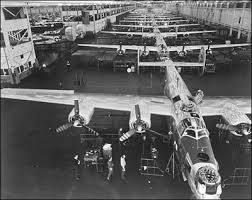
Question: I wonder if they thought you were smuggling Japanese in —
Answer: I don’t know. But they — and they had blackouts, you know, we had to put blankets up over our windows at night. And they cut the power — I don’t know how long, but they cut it to 60%. I don’t know what it did to our refrigerators or anything, you know, but they — they had — were very — and school could have no events at night because, see, we’d have to have lights, and there weren’t — you couldn’t cover up all the windows in the school. So everything was in the afternoon, any games or any graduations, or kind of cut out dances, you know because they’d have to have day dances.
Question: In other words the dating scene was hit —
The Things Our Father’s Saw is other first hand accounts of the “war over there” and Rick Atkinson’s Pulitzer Prize books on WWII like the Guns Last Light (a three part series) are simply amazing. All four books are definite must reads in my opinion.
Answer: I suppose so. Life was earnest, I guess. But then Camp Haydon, you know, came about, down at Crescent Beach, Crescent Bay, and that was off limits. And it was quite — I don’t know how many men were down there but there was a barracks and there was a full blown Army camp down there. And they had gun emplacements — they’re still there. The gun emplacements are still there, you know. And they had big cavernous rooms where there were — where they could have had hospital, you know, hospital set up, and enough room — I don’t know, emergencies, you know. It was very — we were very much touched by the war on the West Coast. Because they had to cover the lights. Dad worked in the logging camp and he worked out on the west end and they had to drive with the — well, they’re not cats eyes but they had to do something to the lights so that they – they couldn’t be seen from the air at night.
Question: Wow.
Answer: Right. It was a — I think we were — I talked to kids when I went to school, you know, that lived inland. And I don’t think they had the — the — they didn’t have those things happen. I don’t think they realized as much about the war. But we — we — I think we were all — I think we all thought that we were probably going to be invaded. And you know I think we could have been. We were that vulnerable right at first.
Question: Well, yeah, they talked about the Japanese subs off the Coast and
Answer: Hm-hmm.
Question: — I mean, yeah, you’re prime target if they were going to come — especially after the surprise attack on — on Pearl Harbor.
Answer: Right. Actually I think there was a sister of a man from Port Angeles who was killed by a random bomb down at Seaside with his Sunday School class. I think his name was Larry Winters and I think it was his sister who was — and that was — that kind of brought it close to home, too, you know.
Question: That was one of the balloon bombs?
Answer: You know I’m not sure, or whether it was randomly fired from a ship, I —
Question: Because somebody yesterday, and I’m going to have to do a little research on them, because his memory wasn’t quite as good but he was talking about these balloon bombs that they — that they sent over.
Answer: I’m not sure whether it was that or whether it was a random gun, you know, that they were just shooting randomly at the Coast.
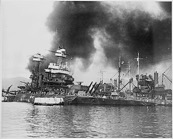
Answer: Hm-hmm.
Question: But yet you still were that aware of —
Answer: Oh, oh, very much aware, very much. And Mom became a plane spotter, you know, volunteer plane spotter, and she’d have, you know, the silhouettes of the different planes and she’d be working out in the yard or if she was in the house, and she’d hear a plane and she’d drop everything and get the, you know binoculars, and look at the plane, and then she had to mark down which direction it was going and what kind of a plane it was. But there were a lot of those that, you know, that was all voluntary. And then Red Cross drives. You know, she was on the Red Cross drives and war bond drives.
Question: When she wrote down all the information with the planes, do you know what she did with that?
Answer: You know, I’ve been thinking about that because we didn’t have a phone. But she must have had to have gone, on a very regular basis, down to the — probably down to the Joyce store which was the closest phone, I’m thinking, but I never — all I do is remember her spotting planes. I don’t remember what she did with the information. But she must have gone down to the Joyce store. Or to the nearest phone, which wouldn’t have been on our road. Nobody on our road had a phone. We didn’t have phones until, you know, after the war.
Question: Because what happens — one of those things where they had everybody writing those things down and they just kept them — and you know. Somebody must have.
Answer: Yes. I’m sure they dispensed with that information someplace, to find out, you know, where — where the planes were going to and from. But I used to lie awake at night and hear the planes and I just was sure that we were going to be bombed, you know. I just had — I thought they were going to come over us like they did in Pearl Harbor. And I think I was — I was, well, 12 years old or so. I think most kids felt that way, you know. The war was closer to us, I think, than to lots of areas.
Question: Yeah, I would imagine, yeah. I never thought about at that age, of 12, 13, 11 years old, seeing what happened to Pearl Harbor and having that fear of laying in bed at night thinking it’s going to happen here.
Answer: Right, right. And then I was in high school then when — of course President Roosevelt was the president during all that time. And very much honored, you know, and his speech was — well, like I said, it made such an impression on us, because partially because our teacher made sure that we knew how important it was. And I remember the day he died, for example. You know, one of the kids in high school said that he had passed away and they immediately ran out and lowered the flag to half staff. So that was the era that I grew up in.
Question: It’s amazing when you think about those life experiences like that that you now where you were and what you did because it was so — I don’t know if you realized you were part of history at that time?
Answer: I don’t think anybody does at the time, do they? Except for a teacher who might say, “Remember this.”
Question: See that is what is so amazing.
Answer: Hm-hmm.
Question: – is that your teacher knew enough to let the students — a friend of mine teaches here and we were talking last night. He was talking to his kids, he said something about MT. St. Helens. And they said, what? He said, well, yeah, I had hiked up there and I’d been there before and we were there — near there, on the day of. And they were so amazed because that was a big historical event. And we thought well that’s weird, but I guess it is an historical event.
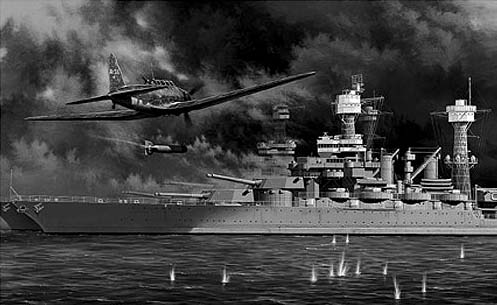
Answer: MT. St. Helens because the ash fell and we had the school closed for two days — in the central part of Montan
Answer: Because of the ash. It was like dark — like a sun eclipse, right.
Question: Oh, yeah, yeah. I was in Pullman at the time.
Answer: Oh, were you.
Question: Oh, yeah.
Answer: Is that where you went to school?
Question: That’s one of my schools.
Answer: I was on the college a year program, so I finished at Wazzu and then after I toured for a couple of years I went back to Eastern and —
Answer: So you’re from — you’re a Cheney grad.
Question: Yeah.
Answer: Now what year did you graduate?
Question: Oh, I was, well, I went back to Cheney in ’84, something like that. And it was ’81 when I was in Wazzu.
Answer: Good school.
Question: I loved it.
Answer: I loved it. I did.
Question: It’s the best. People ask me where they should go to learn video and all that and I tell them go to Cheney. And again, it’s a small school.
Answer: Our grandson is in communication there.
Question: Oh, really.
Answer: Yeah, in communication. He’s on the honors program. He just started it this year.
Question: Well then he knows Dr. Dave. Impress him and say you know, how’s Dr. Tuishi doing — how’s Dr. Dave. David Tuishi.
Answer: Dr. Tuishi. I’ll remember to tell him —
Question: I’ll tell you, he’s a gem. What he taught kids who were willing to learn was — and see Wazzu is known for video. And I was at Wazzu doing theatre, and kind of went over and looked at the video department and there was nothing. And when I went to work with Dr. Dave it was like — when you left — he has a summer program on top of his school (inaudible) chosen summer, you didn’t know if you were going to make it or not going to make it, but I liked it.
Question: Do you remember where you were when you heard the bomb had been dropped?
Answer: Well, I must have been summertime — it was summertime — I remember it was August and Mother was canning, like she did all summer long. And we heard about it, and then we heard about the second one. And then we happened to be in Port Angeles the day that the war ended. And if that wasn’t a wild and crazy time. That was wonderful.
Question: What was that like?
Answer: Oh, it was great. There were servicemen — they must have been sailors, I don’t know, Coast Guardsmen, and there were people on Front Street — you couldn’t drive a car. You know, everyone was just — it was just a big party. It was just wonderful. Mother had gone to town and I think it was a Sears Roebuck office. She must have been going to either make an order or pick up an order. And we had to walk there because there was no way you could drive a car. It was — you know, it was wonderful. It was just a great, great time. People were very very much relieved, I think.
Question: Everybody knew everybody, all of a sudden.
Answer: I think so. I think so. Yeah.
Question: Was the harbor — did you come into town enough, or is, well is Joyce on the coast or is it inland?
Answer: No, it’s off the coast.
Question: That’s what I thought — it’s inland.
Answer: Yeah, we’re just up from — see Crescent Beach is right to the north of Joyce.
Question: So you didn’t see ships — Navy ships coming and going or did you end up —
Answer: Well, actually we could see the — the Straits from our house, so yes, we did, hm-hmm, we did. Any ship that would come into Seattle, we could see go by our house.
Question: Boy, that must have been an interesting perspective as a child to see that. To see these —
Answer: Right, but you know, a lot of times they were at night — they did night runs, so people didn’t see them. But that was a — it was a really — it is true, it was an historical time and we didn’t — we just lived it. Like you do all things, and then think about it later, I guess.
Question: And that’s the interesting thing. I mean that is — I talked to a gentleman yesterday and he was standing at the runway in Tinian and the Enola Gay landed and he said there were brass all over the place and he thought they were going to go in for the invasion — one just come in from dropping the bomb.
Answer: Oh, my goodness.
Question: I asked him, I said, did you realize — and then he found out later, you know, an hour later, what it was, what had happened. He said no, I was just thinking about getting home, seeing my daughter. You know, he says years later he looked back and you think, wow, I was — was right there. But that’s it, it is — and I think that’s one of the hardest thing to get across — that even though war went on, there is this life goes on at the same time.
Answer: Right, hm-hmm, right. My sister wrote to a fellow just to be, you know, like — she was older and she was writing to servicemen. She ended up marrying him, you know. He had been stationed at — oh, Port Townsend or near Port Townsend and she had met him through my other sister’s husband. Because they had gone — I know he’d met him and gone hunting together or something. But he was sent to the Japanese theatre and so she just was being, you know, patriotic and writing of home to him and they ended up getting married. So I imagine a lot of those things happened, too. So I got a neat brother-in-law out of that one.
Question: Boy, that’s neat. That was kind of their courtship.
Answer: Yes, hm-hmm. I mean he was in the Japanese theatre for three years. He didn’t even come home till V-J Day. And he was one of the first troops to be over there. So, you know, she wrote for, oh, several years, see, three years that they wrote back and forth. And ended up getting married.
Question: Boy that’s amazing the bond that must have been formed because of the experiences that he was facing, to be able to have that piece of home that —
Answer: I think that’s probably why he treasured that writing back and forth. You know, it was a piece of normalcy in all that. Because that was a terrible theatre of war. I think it was even — I think anybody would agree that it was worse than — than the European theatre.
Question: I’ve been trying to — as I talk to the different people and listen to them and yeah, because of the sneakiness and –. And you think of being cold being bad, but being over in this —
Answer: The jungle, hm-hmm.
Question: — and rot, oh, — I don’t think I (inaudible). Although I know where I want to be a POW. We interviewed one gentlemen that got shot down over Germany and — and the pilot came on and said we’re going down. Where do you want us to put down, in Germany or in Sweden. And they all said Sweden. And that’s where they ended up as prisoner of war camp was in Sweden. It was at a summer resort — they were given a stipend. They could go into town, go to a little bistro and sit and have their little coffee and all that. And finally the Swedes came out and said okay, you guys are going to be escaping next week and the pilot will be here tomorrow to talk to you. He came and captain met with him and they went into main airport and checked through customs and got on the plane and flew out.
Answer: Oh, my goodness.
Question: Well, that’s like, okay.
Answer: Prisoner of war camp of choice.
Question: Exactly. So they didn’t treat the Germans as nice, though, the Germans were kept somewhere else. And so they wanted —
Answer: Yeah.
Question: Do you think that there’s a message from World War II for your great, great — because I know you have a great grandchild, if I remember. Do you have —
Answer: Yes. Just a great — one, hm-hmm.
Question: For the great, great, great grandchildren that you and I will never meet that this is going to be a history book activity and particular reality of war.
Answer: Not to forget. That if we’re not careful, we can repeat the horrible parts of our history. And I think man is capable of horrible things. I think — I think we can relate it to — to even in a Christian sense, that if we don’t follow the precepts of Christ, we are going to — we’re going to do it again. And I see the de-baseness of our world and we’re not — we’re not immune from it. In fact I think in some ways America is the leader of it, because we — we are so free and the freedom is not responsible — it’s not responsible freedom. And if you’re going to be free, you have to be responsible. That’s the only thing — I think that’s, probably, what I think — cause everybody goes through bad times. And those who stayed home didn’t really have it near as bad as those who — who were over there in the — and the women who got the message from the War Department and put the gold star — I mean, there was one woman in our home town that had two gold stars, two sons that she lost. That was the horrible part of it. But the people who went over there that, you know, in World War II or in any war, really. They have such memories that I think — I think they have a lesson to teach us all and we have to make sure that that lesson is passed on.
Question: I talked to a gentlemen over in Cashmere and the gold star was if they were killed, right?
Answer: Hm-hmm.
Question: And then — was it a star or a flag that they hung if they had a son —
Answer: A blue star, I think, a blue star, I think.
Question: Well he was an only son, and his mom wanted a blue star. He was — he was 4F and wasn’t going to go in, but his mom was mad because she wanted a blue star. And he’s just like — give me a break, Mom, you know. And that had to, boy, especially such a small community like that, to — to —
Answer: It was.
Question: Because it wasn’t just her children, I mean, basically it had to be the community’s children.
Answer: Oh, yes, I think in a small community, you know, you all are so close. I don’t know cause I wasn’t — I guess I wasn’t too aware of anybody around here that was killed. I do remember that when the Battle of Bastogne was being fought and talking to people who knew that their loved ones must be there. Hadn’t heard from them and were, you know, that was a very bad Christmas all over. I mean I think, you know, there were a lot of tears shed in the States during that Christmas season when that was — battle was going on. Because it was — it was such a tenuous thing whether we were going to win that battle. And I think even as a kid I remember wondering, too, you know, whether we were.
Question: Boy that’s interesting. And then to marry somebody that —
Answer: That was there. Did you — wandering around enemy lines and didn’t even know he was there. (laughs)
Question: And he said we were asking some people and then we thought maybe we were where we weren’t supposed to be. But again there’s this surreal aspect of war.
Answer: Right.
Question: We all think that it’s this very organized and — but you think of these thousands of people running around and who knows who’s where.
Answer: Right. And — and his buddy was walking with, fiddling with that hand grenade and saying, well maybe, probably I should throw this away. Tossed it over the hedge and it blew, you know. I mean, how — (laughs)
Question: I think we had a lot of lucky soldiers.
Answer: I think so.
Question: Lucked out over there.
Answer: You know one thing that I remember as a kid was — you know, sugar was rationed, of course. And Mom did a lot of canning, as I said. And canning with honey. I remember there was – somebody out at Forks that had Fireweed honey, and it’s a wonderful honey but it’s darker than some honey. And that was readily available. And Mom made a — she used to win prizes for her cakes at the fair. And she learned to make a honey cake which was heavier. I don’t know whatever happened to that recipe — it’s a good recipe, but I — she probably tossed that after the war, too. She was probably so glad it was over with. But that was a wonderful cake, but, but canning with honey made things — like for example, peaches, it made them darker. They’re not — they weren’t –just weren’t as pretty. But you know, sugar was rationed, and you know this was a Scandinavian community and to be — have to have coffee rationed was a very, you know. That was, that was bad. Because I don’t remember how much we were allotted for coffee. We used to get Airway coffee from Safeway, and grind it in the thing, you know, at Safeway, and then bring it home and then — and make that last a long time. But I can remember we used to walk a mile to the mailbox and Mom and I would walk, you know, when I wasn’t in school, we’d walk down to get the mail. And there’s this Scandinavian lady named Mrs. Nielman, on her way back, you know, she’d come out and wave a coffee cup and she’d say, now, you know, come and have coffee, she says, it’s real coffee. It wasn’t watered down or grounds poured over again, you know, so we’d have to go and celebrate having a real cup of coffee. And that was my very first taste of coffee was, you know, she let me taste coffee at her house and I was just, you know, boy, seventh heaven, just a little kid, you know, and I got to have real coffee. During the war. But those — those kinds of things, you know, that kids remember.
Question: So even out there. Cause I know, it’s real interesting — the rationing in different places. People faced it and people didn’t face it. So that — the Joyce store?
Answer: Probably, that’s where we did a lot of — or down at Safeway in Port Angeles when we did go to town. That’s where we got the Airway Coffee from was from there. And shoes were rationed. And that was kind of tough if you were becoming a teenager and you wanted a pretty pair of shoes, but Mom could send for the ones that weren’t rationed from National Bells Hess catalog and they cost not very much. And you wouldn’t dare get them wet because you know, they’d kind of fall apart. But you didn’t use those for school shoes but you could use those for, you know, for Sunday shoes. But, so I don’t know how many pair of shoes that we were allotted, probably one pair every, maybe, I don’t know. How did they — that part didn’t —
Question: Because Mom and Dad took care of that.
Answer: That was their problem except when I wanted a pair of party shoes I know we had to go to National Bells Hess and get cheap ones that didn’t have to have a ration stamp. I suppose because of the leather.
Question: Or maybe even the rubber.
Answer: I bet.
Question: It’s interesting to hear what different people missed because of the rationing. I talked to one woman and it was catsup.
Answer: Oh, my goodness.
Question: And she loved catsup and she saved her stamps and she got a bottle and when she came home, she dropped it. And broke. And she said she just sat down and just cried because —
Answer: No more catsup until she saved up some more ration stamps. Right.
Question: And then we had a woman in this morning, she worked in the shipyards, but she also took a job in a restaurant, four hours a day, so she could get, whatever she wanted to eat on her shift.
Answer: Oh, sure.
Question: It’s that Yank ingenuity again and —
Answer: Right. I don’t blame her. That sounds like a good ide
Answer:
Question: It’s interesting to see how the people adapted and I wonder if we were to face that again what our society would —
Answer: I think we would. I think we would. We lived on a, you know, we had a farm. It was stump ranch, you know, what they called them out here. And Dad worked out. But we had our own butter and eggs and meat. And I don’t know if those were rationed or not, I suppose they were, but we didn’t have to worry about that. Because we had those — those things, and we made do, well. We did, you know, we were very fortunate.
Question: And your dad was timber?
Answer: Hm-hmm, he was a logger, hm-hmm.
Question: Do you remember — so he’d get home, was he gone all day and home late at night?
Answer: He was gone all week —
Question: Oh, okay, so he went to the camps.
Answer: Right, right, he went out to the west end, to the different logging camps out there. And usually he was — he would come home on Friday night and leave Sunday afternoon.
Question: So you would have maybe Saturday dinner together.
Answer: Sunday dinner.
Question: Oh, so you — that Sunday supper —
Answer: Sunday dinner. It was an early dinner and then he’d leave for the camp. That was my growing up years.
Question: Do you remember during the war, was there — was it a family that discussed the war and things like that? Do you remember your dad talking about it or —
Answer: Yes, they talked about it, but I don’t know that it was table conversation. I think when Dad came home, you know, it was so nice that he was there, you know. Mom would say, well, save all your papers so Daddy can see them. You know, she was — he gave the orders but she carried them out. It was a — they were a wonderful team. And, you know, so we’d talk about our school activities and that more at the table more than the war. It was not a thing that we talked about as much at the table, for example.
Question: Wasn’t political —
Answer: No, no, and I liked it that way. I think that was good. You know.
Question: Do you have brothers and sisters?
Answer: I had two sisters. We had had a brother but he passed away. Actually he died in the — in 1918. They were — he was — Dad was a spruce logger, and there was spruce — Army soldiers in the spruce camps. They were cutting spruce. And they — the soldiers got the flu and Mother said she can remember them being carried out like cord wood at 4 o’clock in the morning on the railroad flat cars. And my little — my brother was just a tiny little guy and he used to go down and play with the soldiers and he — they said he died of diphtheria but it was probably flu because 1918, you know, that — that was that horrible flu that hit everywhere. Maybe that’s one reason why Mom was crying when — when the war was declared. Maybe it brought back those memories that, you know, here we are again. They thought that that was the war to end all wars and in her lifetime, here was another war, you know.
Question: Boy that — you look at what your parents had to face, I mean you come out of depression, World War I, depression, World War II. Lot for families to give up.
Answer: Oh, and Dad lost his job during the war. In the depression. You know, there was no work. And my sister almost died. And there were doctor bills, you know, and then I was born. So it was — yeah, that generation really — I think they probably really hated to see that war — you know, the second world war come.
Question: They knew what the travesty was.
Answer: Right, right.
Question: It’s weird because there also was that — it also lifted us out of the depression and brought jobs.
Answer: That’s true.
Question: But, you know, but at what cost.
Answer: Hm-hmm.
Question: So how did your dad survive the depression when he lost his job?
Answer: Well, he looked and looked and looked for work. And he finally — we had a mortgage on the place. And he finally went into the banker in here in Port Angeles — I think his name was Phillips. And he said I can’t find work. And he said you’re going to have to take the place, I guess. And he said, Jim, he said, here’s your mortgage. He said, it’s in my top drawer. I’ll leave it here until you can start paying.
Question: Wow.
Answer: And so thanks to that friendly banker, they’re not so friendly any more, I guess but —
Question: It’s sad, isn’t it.
Answer: Yes. But Dad did find work and he cut pulp wood and then went back to work. And then when he did go back to work, that’s when he started working farther and farther away from home as the timber was, you know, so. But it was work and he was — he was a high climber — where he topped trees, you know, that scary type thing.
Question: See now I know why you thought a banker was okay.
Answer: (laughs)
Question: I see how this works. It’s interesting, the tangled web you weave because he could have been a banker or a teacher was the two options they gave him and he knew he was going to marry a teacher so he took banker.
Answer: I guess so, but did he tell you he was also a farmer and I’ll tell you a Montana wheat farmer is the biggest gambler in the whole world. He puts that crop in the ground, he has no idea if he’s ever going to make it.
Question: Except I was corrected. They call them wheat ranchers. And I’m looking and going, well, where are the cattle. What are you talking about, ranchers. When I was in Scoby they corrected me cause I said something to a guy about oh, so you’re a wheat farmer? And he said — it’s rancher. Oh, I’m sorry.
Answer: Oh, I guess I didn’t know that.
Question: — did he do well as a man of the land?
Answer: (laughs)
Check out Part II of Mrs. Joan Quigley’s war stories and memories from World War II on the frontlines
(Courtesy of WWII Voices in the Classroom, www.wwiihistoryclass.com)
Popular Products
-
Navy Rescue Swimmers Est 1971
$33.50 – $36.00Select options This product has multiple variants. The options may be chosen on the product page -
Off-Duty Attack Pilots
$19.50 – $28.00Select options This product has multiple variants. The options may be chosen on the product page -
Coach Potato – Swimmer Style
$12.00 – $16.50Select options This product has multiple variants. The options may be chosen on the product page -
First Responders – Keep Calm and Save Lives
$24.50 – $37.00Select options This product has multiple variants. The options may be chosen on the product page

